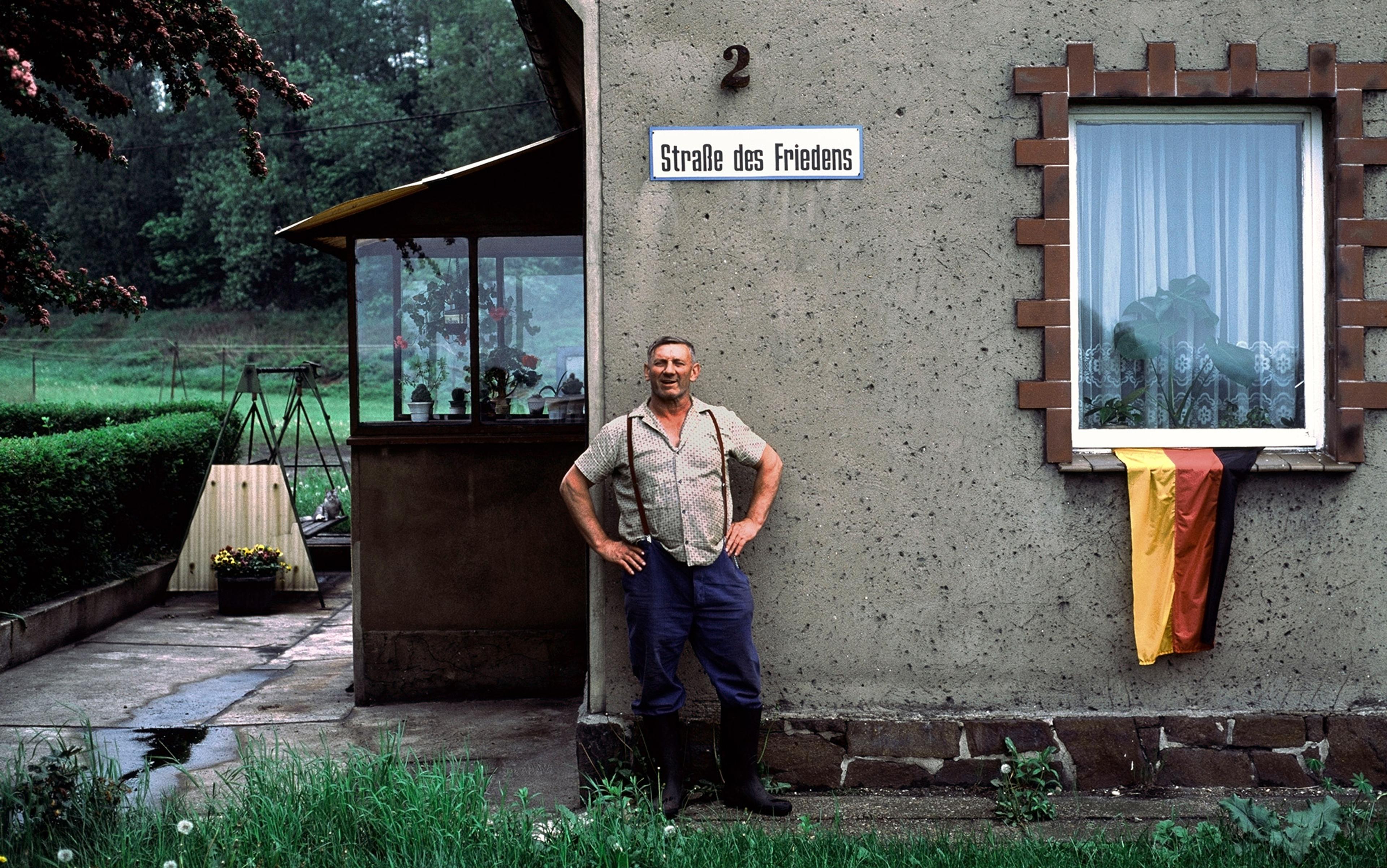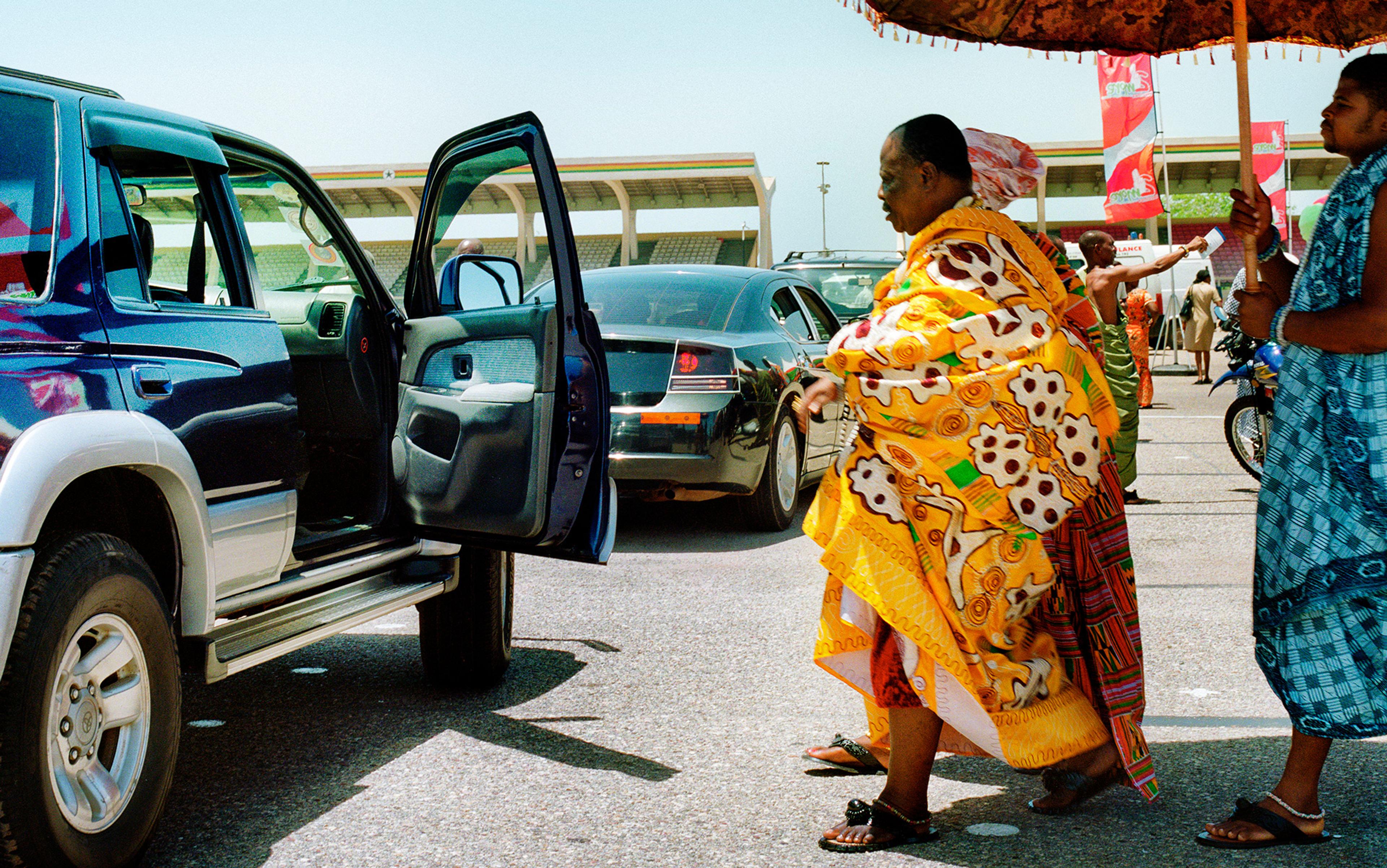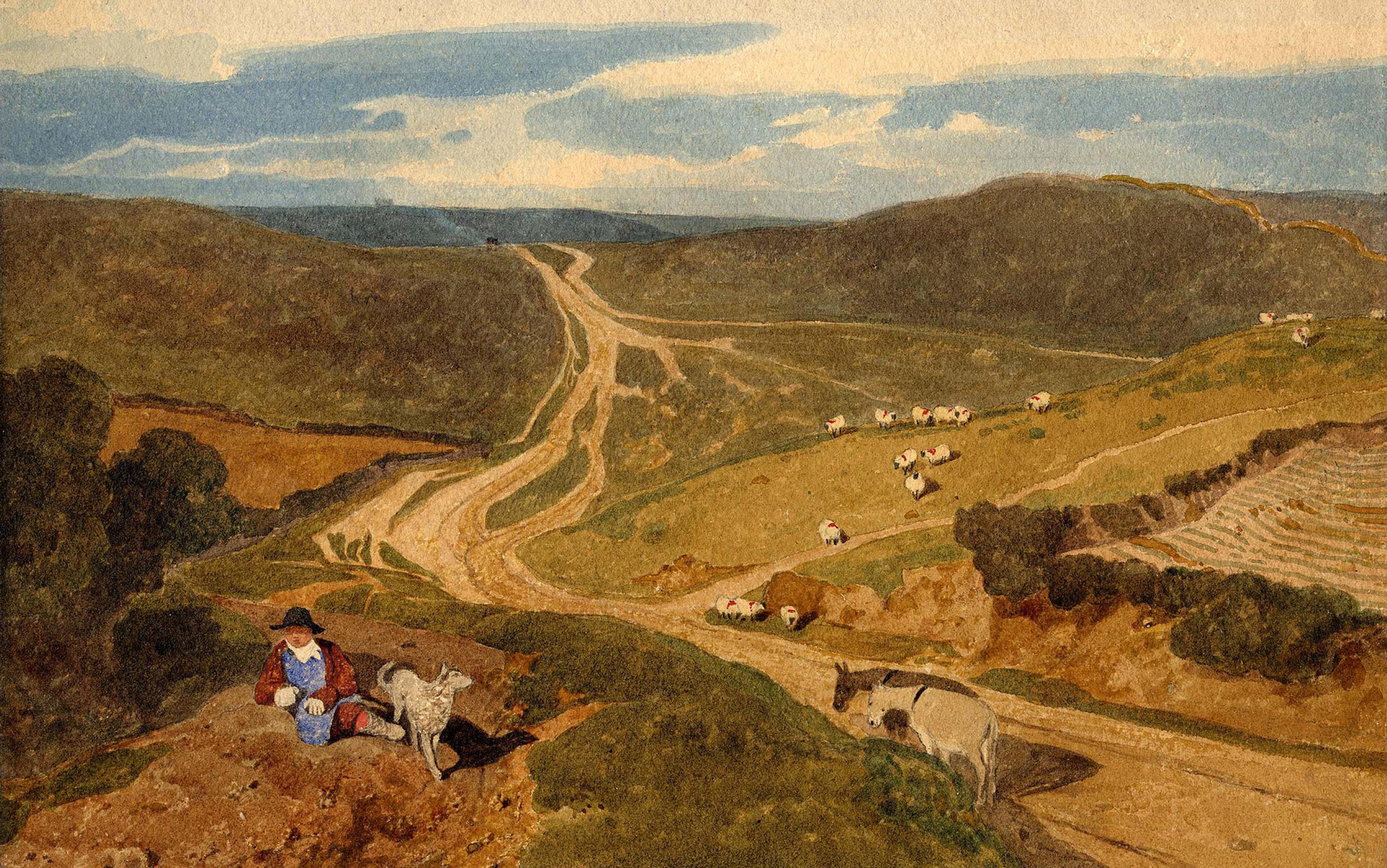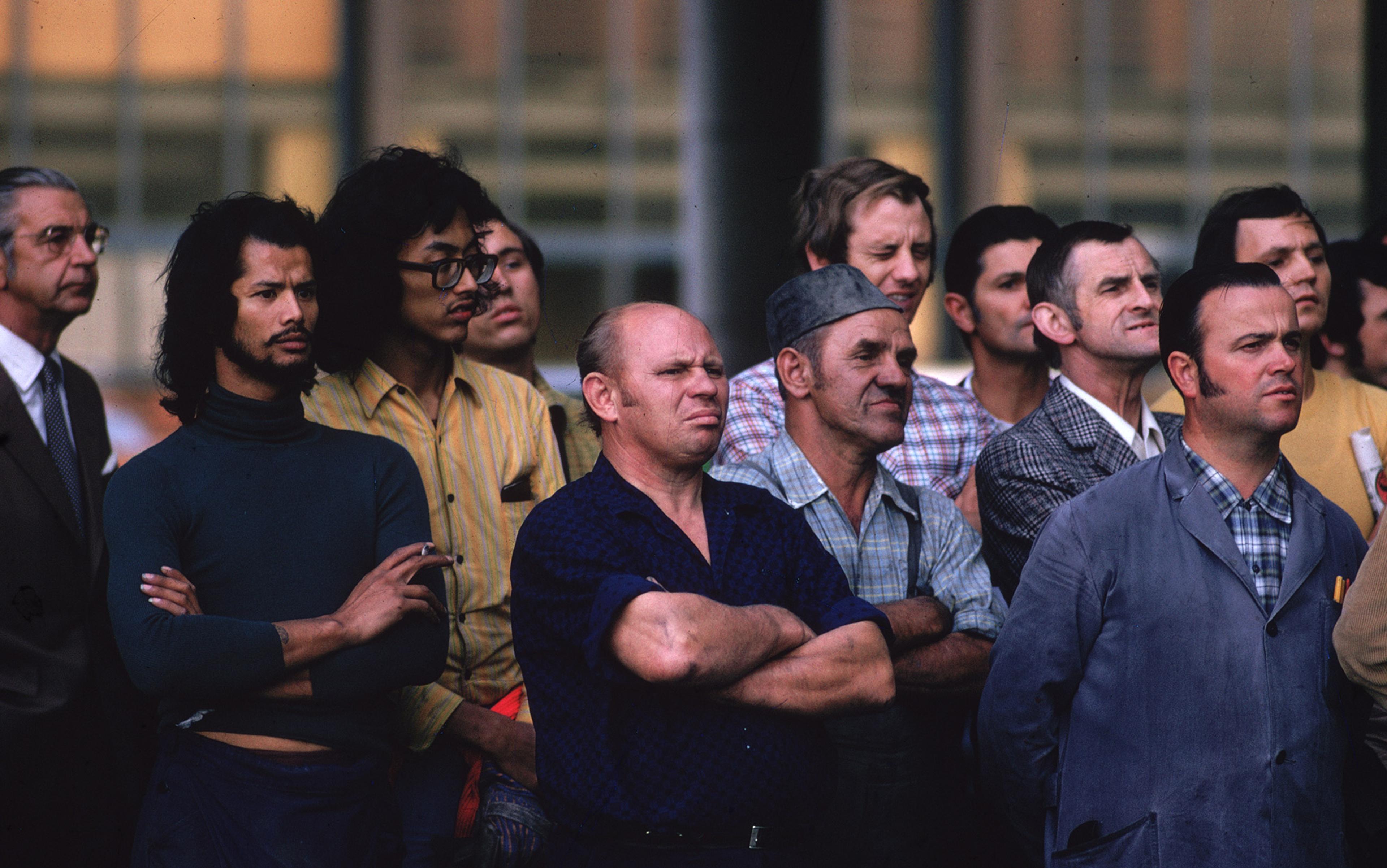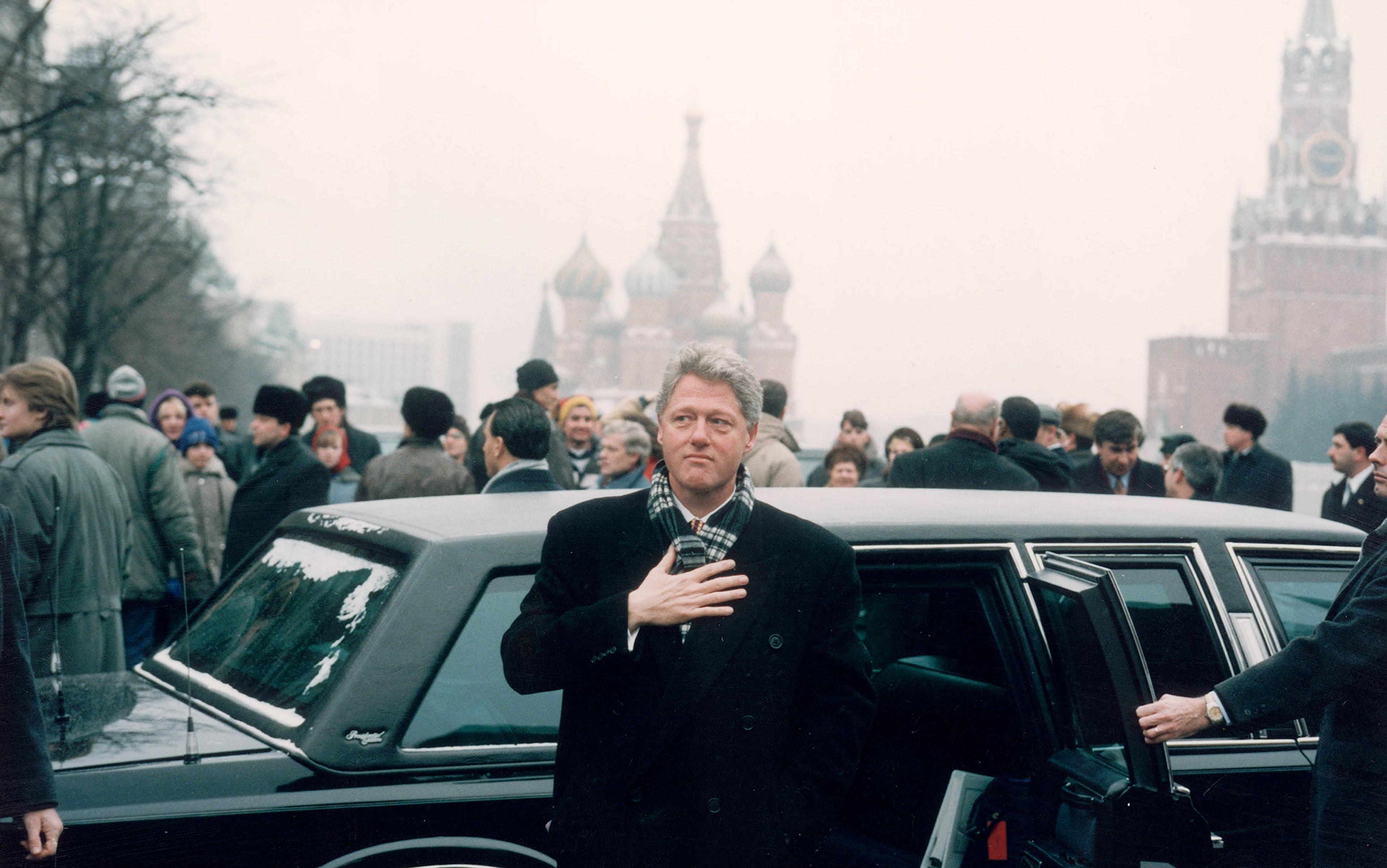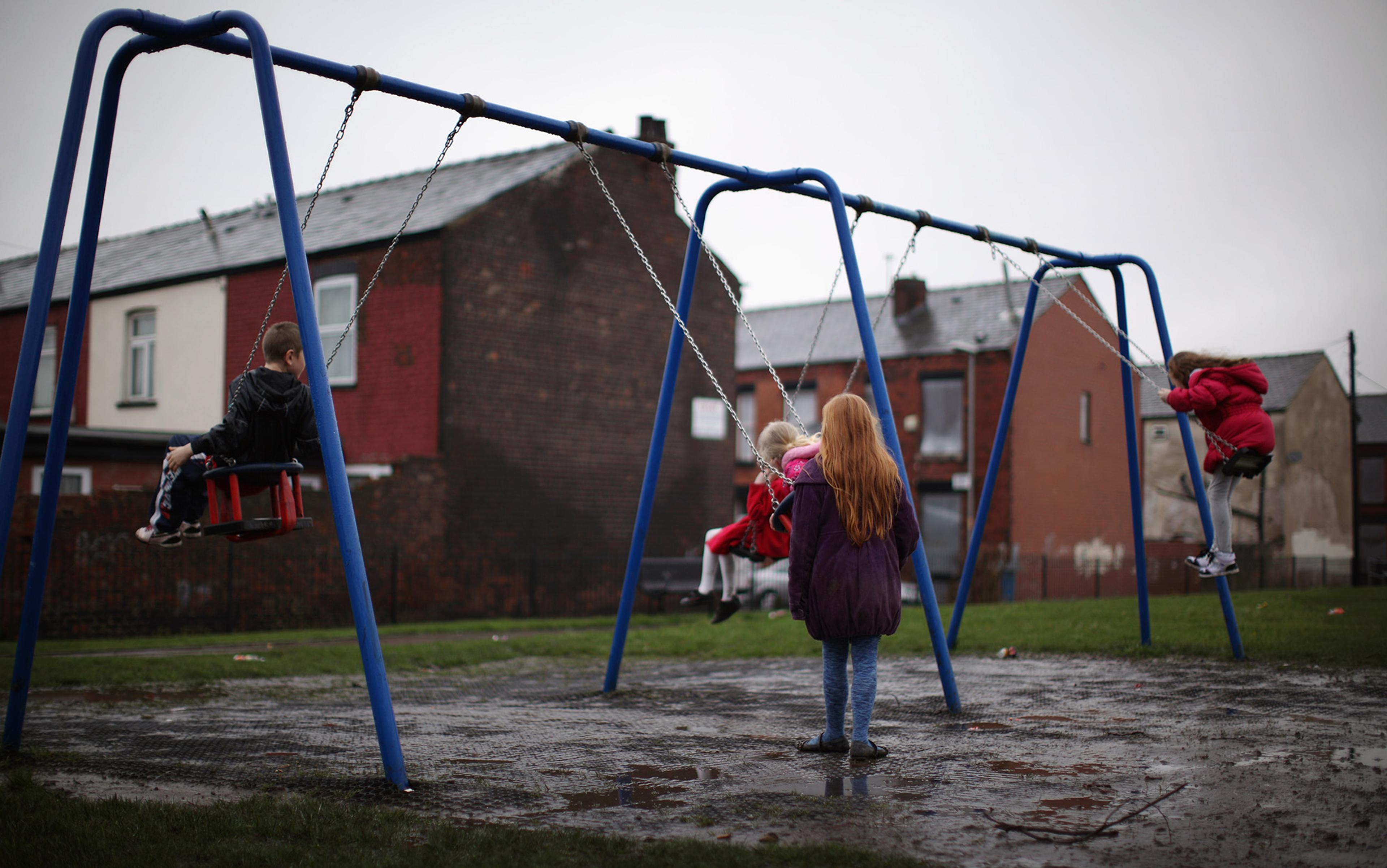In central and eastern Europe, history weighs heavily on personal relationships. When Russia first attacked Ukraine in 2014, the bonds of family and friendship – of which there were so many between these two societies – came under strain. In 2022, when Russia launched its full-scale war, these tensions became unbearable. Social connections shattered like the branches of a treetop in the fury of a hurricane. At the very moment personal relationships yielded to history, it became evident that it was not solely a matter of politics, but rather deeply rooted moral convictions. After all, how could one maintain a friendship with a person who adheres to the Kremlin distortion of reality, who is willing to condone the propagation of blatant lies and the justification of mass murder?
Looking back a bit further into the past, we can observe that the act of breaking social ties, of forcibly severing relationships, is not unprecedented in this context. It has occurred during revolutionary events and significant transformations – the fall of communism, the 1989-91 revolutions, and the turbulent 1990s – which brought fundamental changes to the social fabric of central and eastern European society. What, precisely, are the underlying forces at play here? How can we comprehend them from a sociological point of view?
In her book The Taste of Ashes (2013), the intellectual historian Marci Shore guides us through the manifold and multilayered entanglements of history and interpersonal relationships in central and eastern Europe after the fall of communism. Shore portrays a world in which there is no innocence – there can be no innocence – because each and every adult individual was to some degree involved in the system by which the communist parties wielded power and control. By the 1980s, the system had become primarily structured around a corrupt manifestation of political loyalty, characterised, above all, by complicity, spineless nepotism and backdoor dealings. This historical legacy holds great sway over interpersonal relationships. And so, after 1989, when the regimes finally broke down, Pandora’s box was opened.
The questions arose: who is responsible? Who can be trusted? For those discovering a trusted friend’s collaboration with the secret police, how they handled the situation post-1989 became crucial. Downplaying the consequences and refusing to sever ties with the past could lead to the end of the relationship, while remorse and acknowledgment of authoritarian rule’s consequences might open a path to reconciliation. People faced choices, determining their associations based on moral clarity and the pursuit of truth – or else, on avoiding unsettling questions.
Shore’s account is a captivating everyday phenomenology of politics, laying bare how political pasts and futures can create divisions among people. However, there is more to it. Another subtle process can also alienate former friends: the issue of economic deservingness.
In June 1992, soon after the fall of the Wall, Berliner Zeitung, a formerly state-run newspaper in the communist-ruled German Democratic Republic (GDR), invited its readers to submit letters to the editors on the topic of friendship. What was the meaning of friendship today? One reader recounted that: ‘when my friend got married, it did not impact our friendship at all … our relationship broke off, strangely – but tellingly – with the fall of the GDR. Fundamental differences in our characters revealed themselves, ones we were tacitly aware of, but which had not impacted our friendship before.’
What might those differences in character be? During the 1990s, throughout eastern Europe, people witnessed profound economic changes. The transformation period was characterised by contradictions: it gave rise to great political and economic accomplishments, but also to innumerable socioeconomic tragedies. Social upward-mobility expectations, for many, did not materialise. In disadvantaged regions, poverty surged, and many lives were lost due to health-related complications. In an analogy to the deindustrialising rust belt in the United States, social scientists have described the profound health consequences in certain regions and societies of eastern Europe as ‘deaths of despair’. In some areas, especially in the post-Soviet societies further east, economic shock became a persistent reality. In their book Taking Stock of Shock (2021), Kristen Ghodsee and Mitchell Orenstein have calculated that, on average, it took approximately 17 years for the 28 post-communist societies to return to their levels of economic output of 1989.
As the state retreated from the economy, public resources like healthcare were marketised and defunded. Welfare systems weakened. Life chances diverged and social inequalities surged. Individuals who once resided in the same neighbourhoods, possessed the means to acquire similar goods, and embarked on comparable if moderate vacations found themselves occupying vastly disparate social positions merely a few years after the collapse of the Iron Curtain. People developed different ways of coping with these new realities.
This uneasy connection between the economic and the moral … is what deeply impacts social relationships
This is where ideas about economic deservingness come into play. Disruptive economic change and the inequalities it gives rise to are not merely abstract concepts; they resonate deeply within a person’s heart and mind. Often, it is through the lens of economic deservingness that people make sense of such transformative shifts.
Economic deservingness involves two aspects: first, the distribution of material resources, which raises questions about fairness and redistributive justice. After 1989, who succeeded in moving up the social ladder, what did they gain, and what were the reasons behind their success or failure? Second, deservingness is evaluated at a personal level, entailing judgments about individuals and their moral qualities. What personal qualities are reflected in material gains or losses during the transition to this new society? This uneasy connection between the economic and the moral – unsettling because it brings together two realms that are often, and for good reasons, thought of as separate – is what deeply impacts social relationships. For better or for worse, it is within their social networks that individuals develop a deep understanding of economic inequalities and express their nuanced beliefs about justice. That’s what we can learn from listening to people’s stories and memories of the post-1989 changes.
Before illustrating this point in more detail, it’s worth noting that this is not limited to the transformations in central and eastern Europe after 1989. Even beyond this context, social scientists have often noted that people draw on social comparisons to make sense of inequalities. They assess the significance of differences by comparing themselves to others, such as examining the income or wealth of their peers. Through these comparisons, individuals position themselves within a social framework, determining what is considered normal or excessive. However, frequently this kind of research only touches the surface when it comes to people’s reasoning about justice. Focusing solely on isolated instances of social comparison fails to address the meaning of the kinds of social relationships that are at stake here and, consequently, their moral implications. It overlooks the historical significance that underlies social connections, and the formative power of experiencing how economic pathways might undermine, and change, egalitarian relationships.
This becomes apparent when we examine the fractures within the social fabric of post-communist societies, the cracking and breaking of network branches. Individuals who lived through the 1990s often recount stories of losing connections, including former friends, in the aftermath of the system changes. Many have vivid memories of severing ties with individuals they were once closely associated with.
Lenka, a Czech healthcare worker in her late 40s, remembers ‘separating’ from a former friend in the mid-1990s who made her feel inadequate, challenging her wish to ‘stay normal’ amid the profound changes after 1989. Others remember ‘breaking off contact’, ‘severing ties’, ‘not wanting to be associated anymore’ with some individuals. As network sociologists know, relationships may end for reasons that are purely circumstantial, such as having less time for each other, moving away, or shifting jobs. However, individuals who witnessed the rapid increase in inequalities after 1989 often recount stories that indicate these ruptures are not neutral in nature. Instead, they carry a moral significance. The language employed by individuals when narrating such experiences reveals a sense of rupture, or what the sociologist Eva Illouz calls ‘micro-traumatic events’ in her book The End of Love (2019). In these episodes, a breach of trust comes to light, an instance where the other person is held morally accountable for the resulting outcome. In many cases, these breaches of trust are framed by economic deservingness.
The 1990s are typically remembered as a period of great economic opportunities. With the fall of communism, there was freedom, there was a new market society. People wanted to be part of the process of societal opening-up. It is often expressed that the early 1990s provided a chance for individuals to seize control of their own destinies, liberated from the constraints of socialist complacency and the uniformity of life prospects. But what about those who were not ready to embrace this new future?
The process of privatising the formerly socialist economy began in the early 1990s, soon after the political transition. Numerous companies underwent downsizing or disappeared altogether; millions of jobs were lost. In certain regions of East Germany, for example, unemployment affected up to a third of the adult population. Individuals had to navigate the challenges of economic hardship. Some perceived those who were struggling as burdens, lacking the willingness to embrace the available opportunities. There are accounts of people severing ties with former friends whom they viewed as failing to seize new possibilities. For instance, Robert, a successful East German engineer and entrepreneur in his mid-60s, recounts how the period after the 1989 revolutions purified his social circles: ‘So some people were breaking away … Those who remained, they share your values. They know that you have to more or less take matters into your hand.’
Questions arose about whether the other person was constantly ‘complaining’ or instead demonstrating ‘initiative’ and striving to make the best of the situation. In episodes of broken friendship ties, narratives often emerge about individuals who were seen as ‘inert’ and ‘unwilling’ to take responsibility for their own situation. Particularly for those who had experienced upward mobility, this attitude of defiance became increasingly intolerable, leading to the end of the friendship. Such views allowed the successful to uphold meritocratic values and assert their own commitment to hard work as an intrinsic conviction.
During the 1990s, individuals’ life prospects were shaped not by their personal commitment or effort, but by structural forces
There are also accounts of breaking social ties from the opposite perspective. With swiftly widening inequalities, it was easy to feel stagnant while others, even in modest ways, experienced upward mobility. Some individuals recount distancing themselves from those whom they perceived as becoming ‘arrogant’, suddenly preoccupied with expensive dinners, travels and self-centred pursuits. These stories often revolve around how a former friend introduced a market logic into the realm of interpersonal trust, thereby violating the sacred boundary that once distinguished the two.
Maria, today in her late 60s, was laid off from a large, formerly state-owned East German company during its dissolution in the early 1990s, and endured the challenges of a harsh labour market for years. She vividly recalls an incident at her birthday party in the early 1990s that led to the break with a once close friend of hers: ‘At one point she came to my birthday, as a surprise, but only to acquire customers for her business! She occupied my guests, my friends, in this way! So we separated … So that was a case when we said, “No, I don’t want you around anymore.”’ To Maria, the former bond of equality – founded on an implicit agreement about what truly matters in life – was shattered.
Accounts like hers typically do not concern friends who became extremely affluent. Instead, they centre on much smaller, subtler differences. People use these stories to criticise meritocratic beliefs and the detrimental effects they have on the purity of social connections. It’s the nuance that counts here, and the fact that these differences emerged from a previously more egalitarian relationship.
It is remarkable that these narratives frame economic realities in moral terms. They emphasise the character traits of individuals, highlighting the way people perceive and evaluate these experiences based on notions of personal virtue and values. This is noteworthy when considering that, during the 1990s, individuals’ life prospects were shaped not by their personal commitment or effort, but rather by factors such as their prior qualifications, gender, geographic location, ethnicity, the fate of their firms, or social connections – all of which are structural forces. Taking initiative and not relying on others to take care of you are seen as indicators of being a ‘good’ person. In a similar way, staying true to oneself and avoiding behaviours that prioritise money over friendships are valued traits indicating ‘good’ character. These moral judgments assess an individual’s character.
The moral significance involved in these situations lies in the essence of the social relationship as a grown connection. The breach of trust is a breach of a mutual understanding of the history of the relationship. The philosopher Avishai Margalit has eloquently articulated this idea. According to Margalit, betrayal is fundamentally characterised by the disregard of the shared values that previously united two individuals. Betrayal is the act of shattering the meaning of a shared past. Only a strong tie, understood as a tie of mutual commitment, attachment and recognition, can ever be betrayed. Such ties are found in families, but more so in friendship relations.
Two friends’ understandings of their past – the past of the self, and the past of the other – is mutually entangled. Because it is constitutive of the relation, the shared past is ‘coloured by the betrayal’. And only a tie that never had as its purpose an external goal can be betrayed. That tie must have been treated as an end in itself. It must have had no other goal but the flourishing of each of the two persons, or more precisely, the flourishing of the relationship itself. Betrayal is the blow to the relation of commitment, which comes with a profound shock to the status of recognition of the other as person. As Margalit notes in his book On Betrayal (2017): ‘The shocking discovery in betrayal is the recognition of the betrayer’s lack of concern; the issue is not one’s interests but one’s significance.’
Court files reveal that the state increasingly persecuted individuals on moral grounds
This understanding of the influence of the past, the temporal nature of social relationships, enables us to acknowledge the connection between economic deservingness and betrayal more accurately. We come to realise that the question of who deserves what after 1989 becomes a central concern for individuals. The moral belief that individuals deserve certain economic outcomes, whether through hard work or social support, also extends to their entitlement to specific social relationships. The stories of broken friendships highlight the desire to purify one’s social sphere from relationships that contradict their sense of deservingness. People yearn for recognition of their economic choices and strive for others to perceive them as deserving as well. This moral claim on their environment and the importance placed on it reveal the significance of economic justice in social ties.
These dynamics are, to be sure, not solely a result of marketisation after 1989. They have deep historical roots, moulded, in particular, by the social conservatism of late-socialist societies. As the historians Thomas Lindenberger and Michal Pullman have shown for the GDR and Czechoslovakia respectively, the notion that someone was supposedly ‘unwilling to work’ was politically propagated and instrumentalised by the communist parties during the 1970s and ’80s. Court files reveal that the state increasingly persecuted individuals on moral grounds, using charges like ‘socially deviant behaviour’, ‘asocial behaviour’, and labelling them as ‘goldbrickers’ or ‘parasites’ to distance them from the ‘healthy’ and ‘productive’ socialist community.
In reality, this politics of scapegoating – accompanied by a sharp rise in racist resentment and violence – was a clear indication that the communist parties had lost ideological support and lacked a positive vision for the future. Nonetheless, this aggressive language subtly infiltrated interpersonal relationships. It shapes dynamics of trust and eerily echoes elements of the moral language of market society, even serving as a framework to attribute economic setbacks during the 1990s to individual choices.
Today, in our world of ‘polycrisis’, a term popularised by the historian Adam Tooze to describe the simultaneity of multiple disruptive events and processes, we can again observe numerous social reverberations of crisis dynamics. The COVID-19 pandemic, the energy crisis, the war in Ukraine all potentially affect interpersonal relationships, and social cohesion, in intricate ways. History enters the world of those who had read in academic books that it was over. Social branches are beginning to crack in parts of the world that were lucky to be spared this phenomenon in the past decades.
In the US, researchers have, for example, discovered that friendship ties, but not family ties, were weakened during the pandemic shutdowns. Drawing from more anecdotal accounts, we can surmise that the experience of this health crisis has prompted individuals to contemplate their genuine priorities in life. As a result, they began to ask themselves: who genuinely shares my values? While the specifics may vary among individuals, the key point is that social relationships often serve as sources of economic recognition. During times of crisis, these very social relationships, and consequently the sources of recognition, become precarious.
Of course there are variations in how individuals maintain their social networks. Some, particularly the young, urban and highly educated, tend to cultivate many weak ties – loose social connections that contribute to their economic prospects and connect them to different social circles. On the other hand, those living in rural areas, who are older and less adaptable in certain cultural contexts, often have smaller networks that are predominantly based on strong ties, often also family-based. For them, issues of loyalty and betrayal are prominent. But what holds true for all these groups is that during times of crisis, the boundary between the private and the economic realms may become blurred. It becomes hard to deny that social ties also serve as economic connections, providing individuals with emotional and cognitive support, as well as information about job opportunities. Whenever the domains of the private and the economic intersect and come into conflict in social relations, people usually struggle to ‘keep the world in moral order’, as Michèle Lamont put it in her book The Dignity of Working Men (2000).
Narratives forge some ties, and dissolve others
Ideas about deservingness are also politically consequential. As social policy researchers have long argued – far beyond the context of the breakdown of communism in eastern Europe – people who believe that individual effort and hard work are decisive to get ahead in society are also more likely to tolerate greater inequalities and to reject a more active role of the state in redistributing resources in society. They have faith that the market will sort things out and are inclined to hold others accountable for their personal failures and misfortunes. Those who believe that outcomes like poverty or joblessness cannot be addressed via individual commitment alone but that social support is necessary, in turn, are more likely to wish for reductions of inequality, and favour stronger welfare states. Beliefs about deservingness, in other words, influence the degree of solidarity individuals feel towards others.
If these normative judgments are deeply embedded in social relationships, then this also shapes what kinds of inequities people perceive in the first place. Whose fortunes or misfortunes are they going to see? What moral choices do they think are involved, and who do they feel sympathetic to on these grounds? The boundaries of their social networks may coincide with the limits of their imagination.
People may, in fact, invent social relationships to justify their privileged position in an unequal society. It has been demonstrated by sociologists that British middle-class individuals employ origin narratives about social relationships to rationalise their own economic status. They tend to portray their upbringing and their family background in a way that links their origins to individuals that are working class, effectively fabricating social ties in the past in order to frame ‘their life as an upward struggle “against the odds”’. During periods of crisis, this becomes even more pronounced: the way people define who belongs to their social circles, both in the past and in the present, indexes their self-perception and the manner in which they confront these challenging situations. By examining their narratives about imagined social environments, we can discern their notions of deservingness.
Yet – and this is precisely what memories of the 1990s reveal – there will be ambiguity in these narratives. We should resist the temptation to label people as either pro-market or anti-market on these grounds. Deservingness is articulated in stories, and these stories contain multiple, sometimes contradictory views. It is how people make sense of the world, and also how they act on their social world. Narratives forge some ties, and dissolve others. As observers, our point of departure must be to try to grasp individuals’ notions of personal agency, particularly in navigating economic challenges, during times of crisis.
The 1989 revolutions in central and eastern Europe occurred over three decades ago, yet the echoes of these stories, and their enduring moral significance, continue to resonate today. The passing of time does not necessarily heal economic and social wounds. The notion that individual responsibility solely determines economic outcomes is highly divisive and largely misrepresents the workings of society. However, we cannot and should not give up on the idea of political responsibility. As Marci Shore reminds us, the readiness to assume responsibility emerges as a key political lesson from the convoluted eastern European experience of the 20th century, and now – in light of the Maidan protest movement, and the struggle against reactionary Russia and its far Right-wing allies around the world – also the 21st.
But economic and political responsibility are not one and the same. The central and eastern European historical experience of the recent past teaches us why we should aspire to a world where there is less moralising of economic lives – and instead, more contestation, including moral contestation, over political futures.
